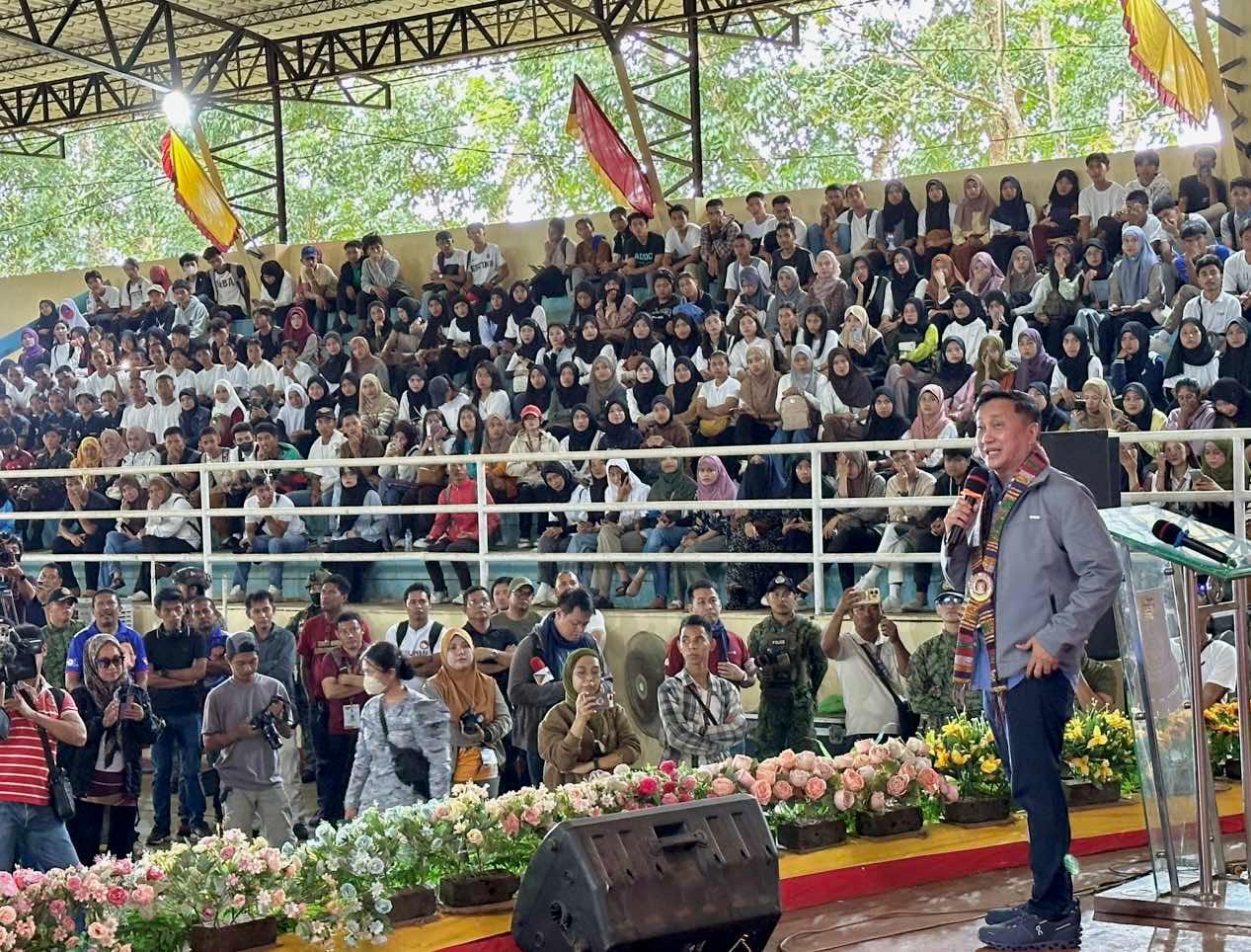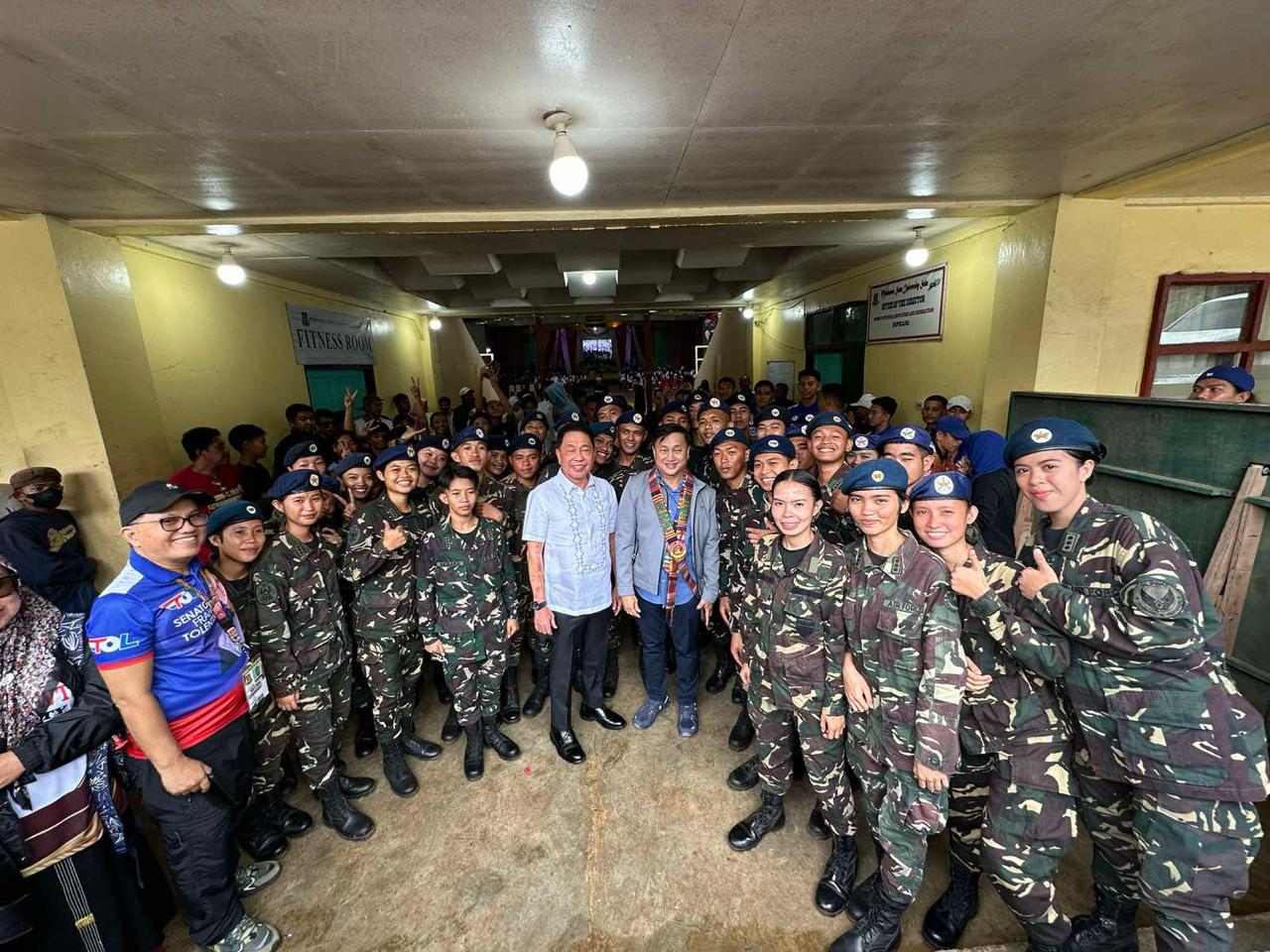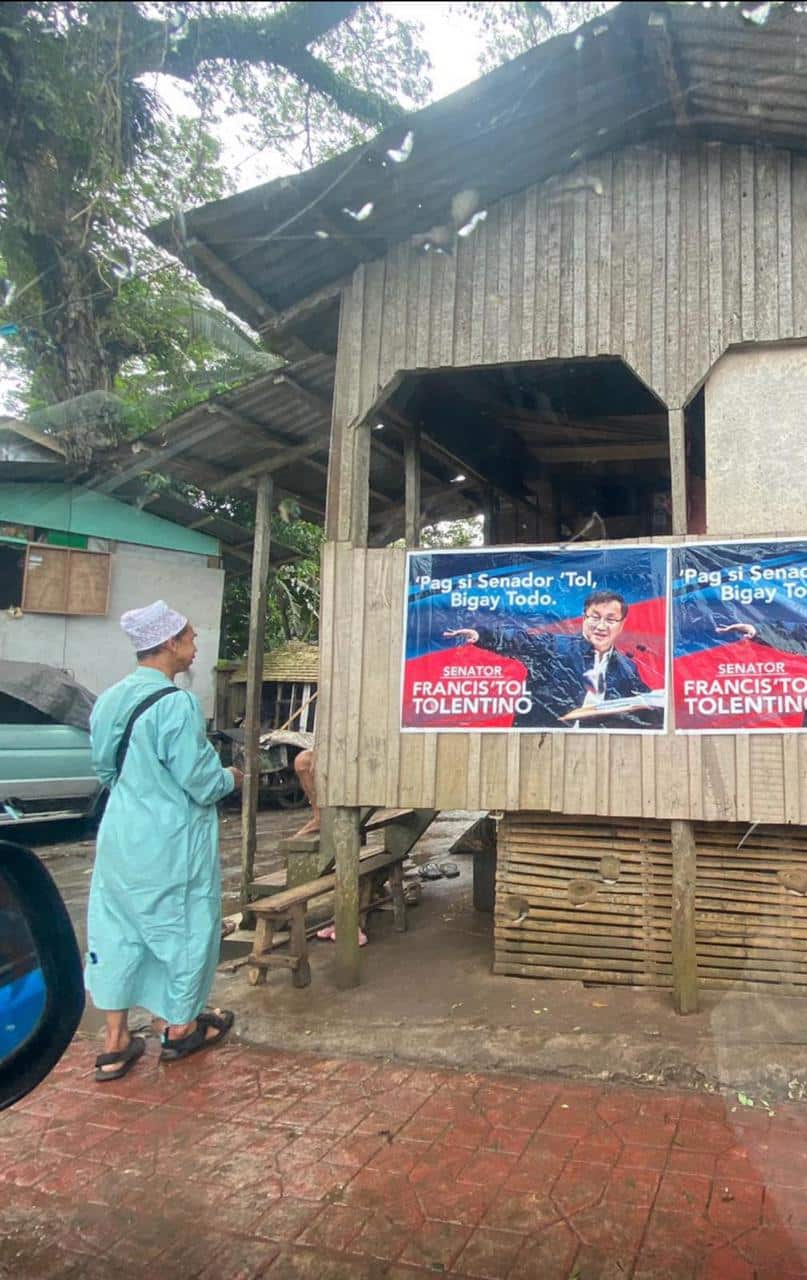Tolentino bats for ROTC innovations to encourage the youth

Senate Majority Leader Francis Tolentino stresses the value of education among Muslim youth students at the MSU- Sulu campus on Monday, October 21, 2024.
JOLO, Sulu – Senate Majority Leader Francis ‘Tol’ Tolentino on Monday shared his plan to introduce innovations to the proposed Mandatory Reserve Officers’ Training Corps (ROTC) bill, which is currently pending in the period of plenary debates at the Senate.
Speaking before officials and troops from the 11th Infantry Division at Camp Teodulfo Bautista in Jolo, Tolentino said the innovations he plans to propose seek to make the ROTC program more dynamic and appealing to the youth, and also more responsive to the country’s needs and interests.
“The ROTC program will just be for one year, different from its previous version, which consisted of two years of straight basic and advanced military training,” said Tolentino, one of the measure’s principal sponsors.
“The second year will be optional for students who would like to pursue advanced training. Meanwhile, the executive program in the third year will allow cadets with advanced training to choose specialized courses,” he pointed out.
The executive program, he explained, could include cybersecurity, for those who are into information communications technology, and maritime security, for those who would like to acquire a deeper understanding of pressing national concerns, such as the West Philippine Sea conflict and maritime military strategy.
“The enthusiasm of our youth to participate in nation-building through military training should not be stifled, but instead, encouraged. And it can be encouraged if we have an active and robust ROTC program,” he stressed.
Himself a Brigadier General reservist in the Philippine Army, Tolentino pointed out that the number of the country’s reserve force is only around 107,000, and thus needs to be continuously reinforced by encouraging recruits from the ranks of the youth.
“In the coming years, the Philippines will be besieged by several national concerns, which might overwhelm national leadership,” he stated.
In previous statements, the senator has underscored the need for a robust reserve force that can be deployed to assist the government during crisis situations, including natural calamities, and public health emergencies, such as the recent COVID-19 pandemic.
Despite the lack of budget and trainors, Tolentino noted that the current ROTC program has received growing interest, both from universities in the regions, such as Mindanao State University in Jolo and Sulu State College, and big institutions in Metro Manila, such as De La Salle University, University of Sto. Tomas, and University of the Philippines.
He also cited the active participation of both male and female cadets from these institutions in the recently concluded Philippine ROTC Games, and the Miss ROTC nationwide search.


